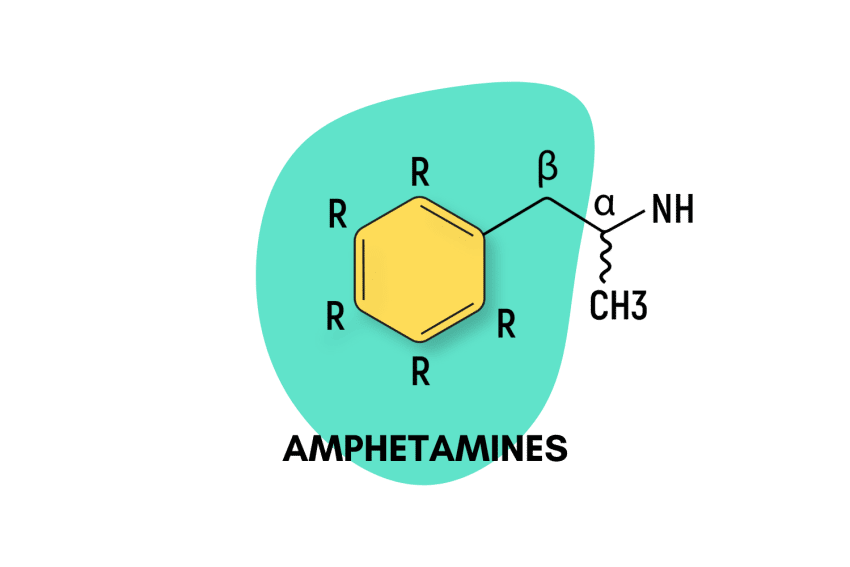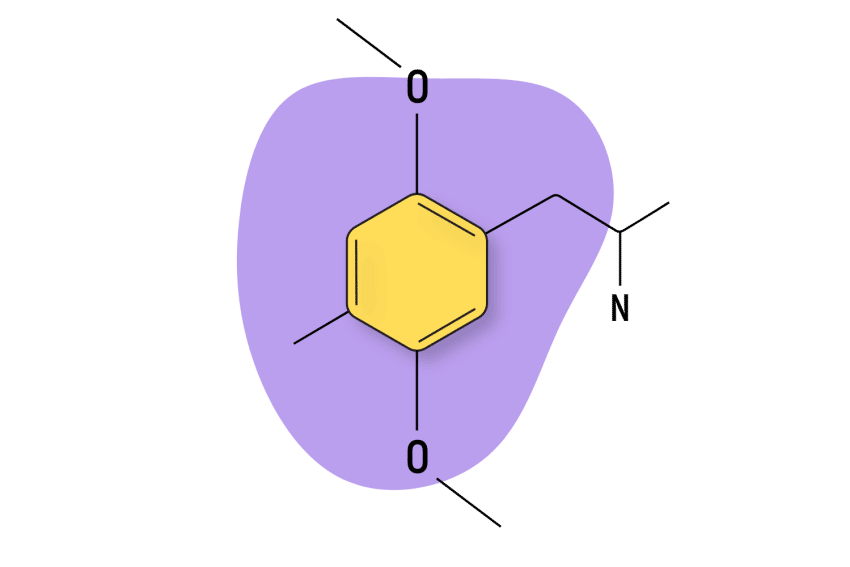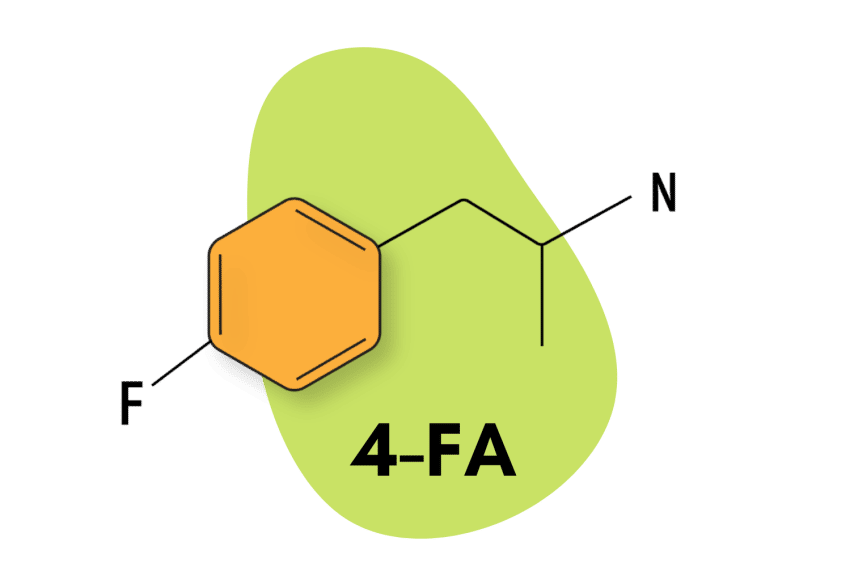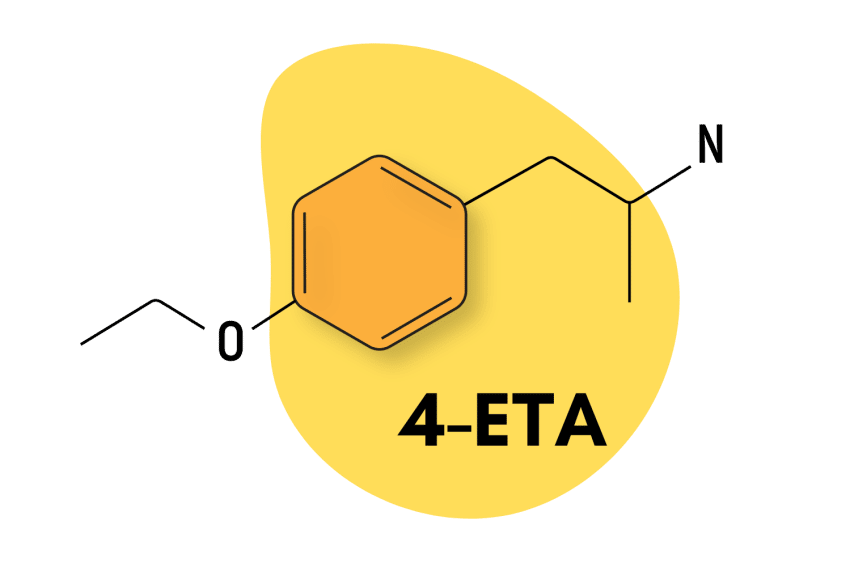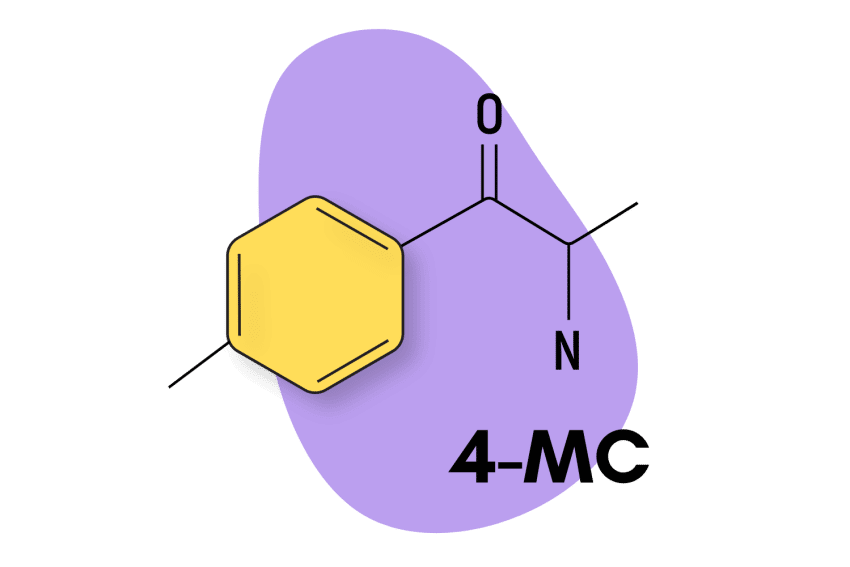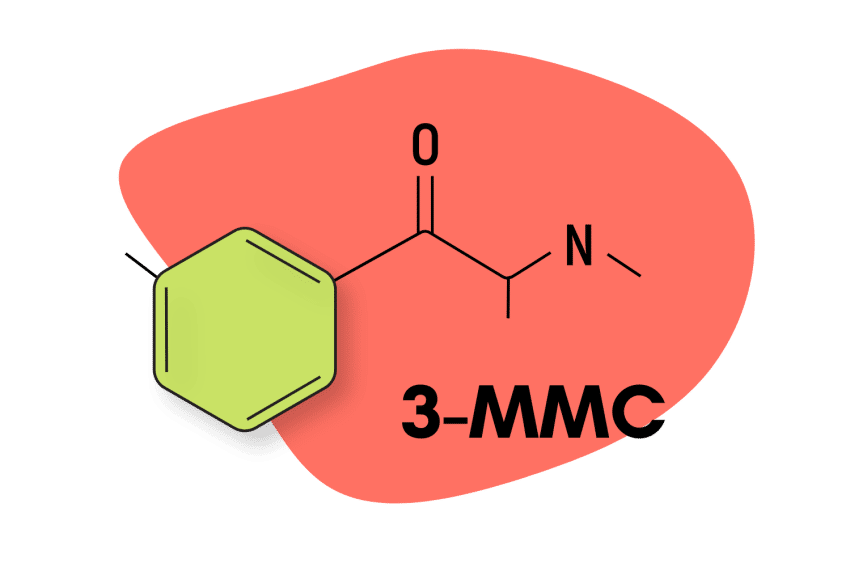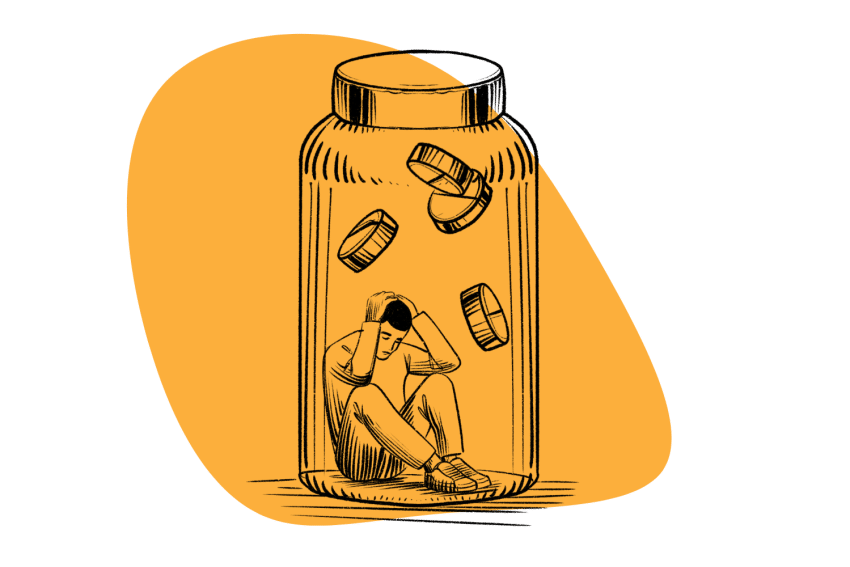Benzphetamine: The Weight Loss Amphetamine
Benzphetamine is the prodrug of dextromethamphetamine and is most often prescribed for weight loss.
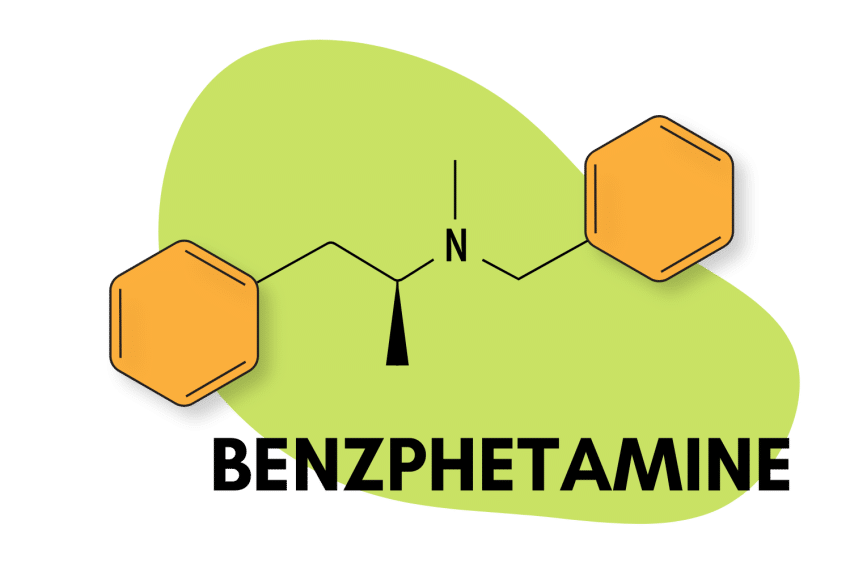
What is Benzphetamine?
Sold under the trade names Didrex and Recede, benzphetamine is a substituted amphetamine used as an adjunct medication in behavioral weight-loss programs.
Benzphetamine has marked anorectic properties and can help promote weight loss by blocking one’s appetite. It also slightly increases metabolism.
Due to its structural and pharmacological similarity to amphetamine, benzphetamine is classified as a Schedule III drug in the Controlled Substances Act. As such, a doctor’s prescription is required to access it legally.
Benzphetamine’s inherent similarity to amphetamine stimulants like cocaine has also stirred interest in its possible use as a treatment for cocaine use disorders. This compound is rarely used as a recreational drug.
Benzphetamine Specs
| Chemical Name | Benzphetamine |
| Level of Risk | Low |
| Other Names | N-benzyl-N-methylamphetamine, Didrex, Recede |
| Most Common Side Effects | Anxiety, overstimulation |
| Duration of Effects | Three to five hours |
| Estimated Threshold Dose | 10 mg |
| Common Dose | 25 to 100 mg |
| Legality/Status | Approved medication |
| PubChem ID: | 5311017 |
| CAS# | 156-08-1 |
How Does Benzphetamine Work?
The primary mechanism for benzphetamine’s weight loss benefits is its ability to suppress the appetite. Its other stimulating effects are believed to play an important role as well.
In general, anorectic drugs like benzphetamine act on the satiety center located in the hypothalamus, have metabolic effects involving fat and carbohydrate metabolism, and lead to a general increase in physical activity [1].
Benzphetamine is a sympathomimetic drug — a class of stimulant compounds that increase the effects of the sympathetic nervous system.
The specific receptors targeted by benzphetamine are norepinephrine and dopamine. Benzphetamine stimulates their release from the terminals and inhibits their reuptake — leading to an upregulation of these stimulatory neurotransmitters.
The resulting increase in synaptic concentrations of catecholamines causes behavioral changes, including euphoria, an increase in mental alertness and excitement, and appetite suppression.
As a prodrug, it’s important to understand that a large part of benzphetamine’s pharmacology occurs due to its metabolic conversion into dextroamphetamine and dextromethamphetamine, two amphetamines with considerable stimulant action. Benzphetamine itself has been found to induce stimulant effects, but studies suggest that its metabolites are much more potent.
Following benzphetamine administration, dextromethamphetamine plasma levels do not peak until 24 hours later. Additionally, the cocaine-like stimulus effects and the rate-decreasing effects of benzphetamine were not found to be correlated with plasma levels of benzphetamine, dextroamphetamine, or dextromethamphetamine [2].
These results suggest the effects of benzphetamine come about as the result of a complex interaction between benzphetamine and its active metabolites.
What Are The Effects of Benzphetamine
The intended effect of benzphetamine for most users is appetite suppression to support weight loss.
Benzphetamine isn’t a popular recreational or functional drug for improving focus and concentration; however, it offers some benefits to the former.
The general consensus on the effects of benzphetamine points to its broad similarities with amphetamine and other related stimulants. Given that its a prodrug to dextromethamphetamine, a stimulant used for the treatment of attention deficit hyperactivity disorder (ADHD) and often used as a cognitive enhancer, one could expect the stimulation produced by benzphetamine to be described as “functional,” meaning its effects don’t overwhelm the user during their day-to-day responsibilities.
Dextromethamphetamine is also known for its tendency to produce cognitive euphoria.
The effects of benzphetamine may include:
- Anxiety
- Elevated blood pressure
- Enhanced focus & attention
- Headaches
- Increased energy levels
- Irregular heartbeat
- Reduced appetite
- Stimulation & euphoria
Does Benzphetamine Work for Losing Weight?
As part of a weight-loss program including dieting and exercise, the magnitude of increased weight loss in patients using benzphetamine vs. those using a placebo tends to be small, only fractions of a pound per week.
The rate of weight loss is greatest in the first weeks of therapy for both drug and placebo subjects and tends to decrease in succeeding weeks.
Tolerance to the effects of benzphetamine, as well as all other drugs in its class, has been amply demonstrated. As such, benzphetamine treatment is only indicated short-term (less than 12 weeks) and is only recommended to patients who have failed to achieve weight-loss goals through diet and exercise alone.
Is Benzphetamine Addictive?
As a Schedule III substance under the Controlled Substances Act, benzphetamine is recognized as having the capacity to produce both psychological and physical dependence and withdrawal symptoms.
In general, all amphetamine stimulants are largely recognized as having addictive potential.
Although not completely understood, the addictive nature of these compounds are thought to be linked to their mediation of the dopamine and norepinephrine neurotransmitters and how these compounds impact the brain’s reward circuitry. This would be more of a behavioral response, which explains why psychoactive stimulants tend to produce less marked physical withdrawal symptoms than other compounds with abuse potential, like, for example, benzodiazepines.
That being said, stimulant-induced withdrawals — although they’re rare and always linked to cases of heavy abuse — have been documented, which suggests that amphetamine analogs can provoke at least some measure of physical dependence.
Is Benzphetamine Safe? Risks & Side Effects
Due to the physiological responses they provoke, all amphetamine-based stimulants carry some risk. However, when used responsibly, these compounds are, by and large safe and free of severe health consequences.
As with most substances, the most prevalent risk involved in benzphetamine use is the possibility of acute intoxication, likely due to recreational use or an accident. Because of this, it’s important to know the signs of amphetamine overdose.
Signs of Benzphetamine Overdose
Acute overdosage with amphetamines may result in restlessness, tremor, tachypnea, confusion, assaultiveness, and panic states. As the effects wear off, severe fatigue and depression are common and can last several days.
Cardiovascular effects include arrhythmias, hypertension or hypotension, and circulatory collapse.
Gastrointestinal symptoms include nausea, vomiting, diarrhea, and abdominal cramps.
Hyperpyrexia and rhabdomyolysis have been reported and can lead to a number of associated complications.
Convulsions and coma usually precede a fatal overdose.
Side Effects of Benzphetamine
According to the FDA, adverse reactions of benzphetamine may include:
- Cardiomyopathy & ischemic cardiac events (associated with chronic amphetamine use)
- Changes in libido
- Depression (following cessation of use & possibly withdrawals)
- Diarrhea
- Dizziness
- Dry mouth
- Elevation of blood pressure
- Gastrointestinal disturbances
- Headache
- Insomnia
- Nausea
- Overstimulation
- Palpitations
- Psychotic episodes (rare at recommended doses)
- Restlessness
- Sweating
- Tachycardia
- Tremors
- Unpleasant taste
- Urticaria & other allergic skin reactions
The use of other anorectic agents, such as fenfluramine and dexfenfluramine, both independently and especially when combined with other anorectic drugs, have been linked to valvular heart disease. However, no cases have been reported through the use of benzphetamine alone.
Besides the possibility of psychotic episodes and seizures, the biggest risks involved in amphetamine use are primarily cardiovascular in nature. The short-term duration of a benzphetamine prescription should be enough protection against the possible long-term effects. Still, the dangers involved in misuse, like overstimulation leading to cardiac arrest, are always present throughout treatment.
Harm Reduction: Benzphetamine
Benzphetamine is not a common recreational drug, but abuse is still common. People who abuse benzphetamine usually do so out of compulsion to achieve their weight loss goals — at the cost of their health and finances.
One of benzphetamine’s metabolites, dextroamphetamine, strongly correlates with recreational use — mostly because of its capacity to induce euphoric states. Some users who cannot get dextroamphetamine may turn to benzphetamine due to their similarity of effects.
We do not encourage misuse of any kind: if you’re on a benzphetamine prescription, you should stick to it. However, at the same time, we are also deeply committed to disseminating harm reduction principles among the general population.
In this sense, here are some helpful harm-reduction tips you can apply to all potent amphetamines, not just benzphetamine.
1. Avoid Mixing Drugs
Drug interactions are complex and can take various shapes within the body, but one of their effects will always be increasing a user’s risk levels.
2. Consider Splitting up your Intended Dose
Users can minimize their chance of accidentally engaging in acute intoxication by utilizing this simple heuristic: take your intended dose and split it by half or, if the compound is particularly powerful, by one quarter. Only after allowing the effects of the drug to fully set in and deciding they can handle another dose should users consider redosing.
3. Stay Hydrated
In the context of a rave, music festival, or nightclub, where alcohol is plentiful and water is scarce, it is quite easy to become dehydrated. Dehydration is dangerous when coupled with amphetamine, so make sure to keep drinking water, especially if you’re also drinking booze.
Benzphetamine Drug Interactions
Drugs interact together inside the body — sometimes making each other stronger, sometimes negating their effects.
In general, it’s unwise to mix benzphetamine with other substances unless directed by your prescribing physician. Some classes of drugs are more dangerous to mix than others, however.
Here are some drug interactions to watch out for when using benzphetamine:
1. Other Anorectic Agents
Mixing anorectic agents, such as fenfluramine and dexfenfluramine, have been linked to valvular heart disease. Mixing these drugs with other anorectic agents, such as benzphetamine, could increase the risk of valvular disease.
Additionally, the use of other anorectic drugs, in conjunction with benzphetamine, could compound the effects and result in too much action — resulting in an overdose.
Examples of other common anorectic drugs include:
- Amfepramone
- Bupropion
- Cathine
- Dexfenfluramine
- Ephedrine
2. Amphetamines & Other Stimulants
Amphetamine stimulants like benzphetamine have potent effects. Mixing them is not only unnecessary but also dangerous. The combination of stimulant drugs increases the risk of significant adverse effects like heart palpitations, nausea, and headaches. A plausible worst-case scenario is overstimulation leading to cardiac arrest.
3. Alcohol & Other Depressants
Due to the fundamentally oppositional nature of their effects, mixing alcohol and depressants does not create the immediate risk of mixing the same type of compound. However, other sorts of risks can arise. The concomitant use of stimulants and depressants is linked to recreational use. In these contexts, “masking” alcohol’s depressive effects by stimulant use can lead to more aggressive drinking as the user feels like they are not intoxicated. When the stimulant effects fade, the depressant properties may overwhelm the use, especially if more than one type is ingested.
When To Avoid Benzphetamine
The FDA warns benzphetamine patients against the following contraindications:
- Advanced arteriosclerosis
- Cardiovascular disease
- Moderate to severe hypertension
- Hyperthyroidism
- Known hypersensitivity or idiosyncrasy to sympathomimetic amines
- Glaucoma
- History of drug abuse
- Use of monoamine oxidase inhibitors
- Use of other central nervous system stimulants
- Pregnancy and lactation
Benzephetamine Dosage
As a controlled substance, a doctor needs to determine the dosing regimen of benzphetamine. This being the case, it’s also true that, generally speaking, most drugs have a consistent average dose. According to the Mayo Clinic, the average (oral) dosage values for benzphetamine are as follows:
For weight loss:
| Adults | At first, 25 to 50 milligrams (mg) once a day. Your doctor may increase your dose as needed. However, the dose is usually not more than 25 to 50 mg 3 times a day. |
| Children | Use and dose must be determined by your doctor. |
Benzphetamine: FAQs
What does benzphetamine look like?
Benzphetamine is supplied in 50 mg of peach-colored tablets, round, and imprinted with “Didrex 50”.
What is the potency of benzphetamine in relation to its metabolic products?
A study utilizing four rhesus monkeys found that benzphetamine was 180-fold less potent than d-amphetamine and produced full cocaine-like effects in only 2 of 4 monkeys. This suggests benzphetamine’s byproducts are of great importance in its pharmacological profile.
References
- Craddock, D. (1976). Anorectic drugs: use in general practice. Drugs, 11(5), 378-393.
- Banks, M. L., Snyder, R. W., Fennell, T. R., & Negus, S. S. (2017). Role of d-amphetamine and d-methamphetamine as active metabolites of benzphetamine: Evidence from drug discrimination and pharmacokinetic studies in male rhesus monkeys. Pharmacology Biochemistry and Behavior, 156, 30-38.



